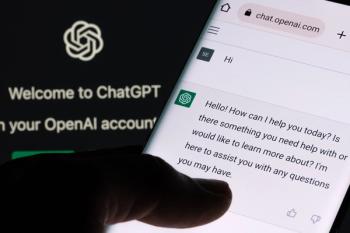
Advocacy can make a difference — and not only in national election years
You, as a pediatrician, can change the world. Not every time and not with every issue, but political advocacy by AAP members does carry clout in Washington.
You, as a pediatrician, can change the world. Not every time and not with every issue, but political advocacy by AAP members does carry clout in Washington.
"It is important to remember that politics happens in a very non-bipartisan fashion in Washington," said Jackie Noyes, associate executive director of the American Academy of Pediatrics, yesterday. "We have a lot at stake in every election, including this one," she told an audience of attendees at the AAP 2004 National Conference and Exhibition on Sunday.
Children's issues typically find support on both sides of the political aisle, Ms. Noyes noted, but the specifics can vary dramatically between the two political parties. Which side it is that pediatricians support is less important than getting involved in the process.
"The most important step you can take is to become part of the process," Ms. Noyes said. "This is an election year. All of the usual political tendencies become submerged in concern over the presidential election."
In general terms, Ms. Noyes explained, the Bush-Cheney ticket favors tax credits and health savings account (HSA) contributions for low-income families and small employers to fund private medical insurance. The Republicans would establish insurance pools and authorize association health plans to bring coverage to an additional 11 to 17.5 million Americans.
The Kerry-Edwards ticket would expand public program coverage, provide tax credits to help people buy insurance, and expand the social safety net. All Americans would be able to buy coverage that gives them the same range of coverage options now available to members of Congress. The Democrats' plan projects enrolling an additional 26.7 million Americans.
AAP makes it easy for members to make their voices heard. FAAN, the Federal Advocacy Action Network, helps unite the voices of thousands of pediatricians on a variety of common issues. Information on specific issues and candidates is available online, she noted. Members should go to the members-only channel on
"The goal," Ms. Noyes concluded, "is to stay in communication, so that our voices continue to be heard."
Newsletter
Access practical, evidence-based guidance to support better care for our youngest patients. Join our email list for the latest clinical updates.






